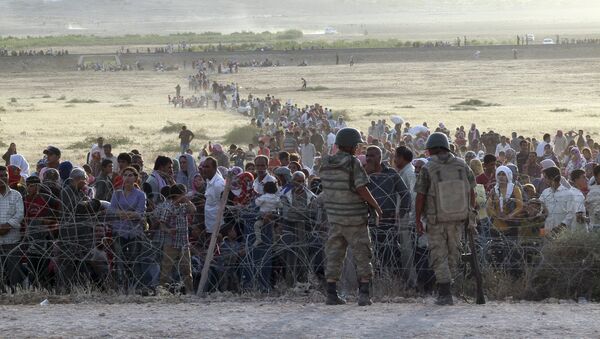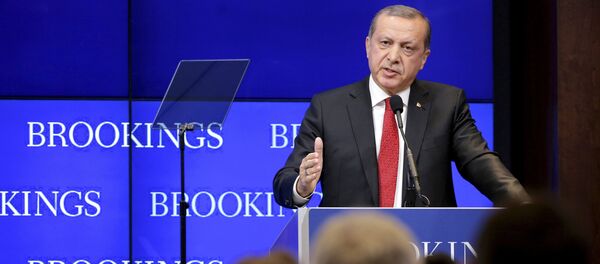MOSCOW (Sputnik), Daria Chernyshova – Turkey opposes the inclusion of Kurdish groups in talks between Syrian government and opposition delegates in Geneva, and its forces continue shelling self-defense forces in Kurdish-held northern Syria.
“I am worried that Turkey's policy towards Syria during the present crisis may leave scars that may take long time to heal even after the crisis, especially if the present regime, or any other modified version of it, stays in power after the crisis,” Yakis said.
Yakis, who had served four years as Counsellor at the Turkish Embassy in Damascus, testified to the extent of Ankara’s aggressive policies toward Damascus, noting that it “did not need to get involved to this extent in the domestic affairs of Syria.”
"There are different types of aggression in international law. One of them is the invasion of the territory of a country by the foreign troops. Turkey did not send troops to Syria. Therefore an invasion in this sense of the word did not take place. Another type of aggression [is] the shelling of the targets in a country by the cannons of a neighboring country. Turkey is carrying out such shellings from time to time, but the Turkish authorities justify their acts saying that they are retaliating the attacks carried out from the Syrian territory against Turkey.”
In the latest interview with Sputnik, Assad reaffirmed his accusation of Turkish President Recep Tayyip Erdogan “directly” supporting the Daesh, among other things, via engaging in oil trade with the terrorist group.
Moscow also contends that Erdogan and his family are directly involved in illicit oil activities with Daesh. In December 2015, the Russian Defense Ministry released satellite images showing oil allegedly being trucked from the facilities of the Daesh, outlawed in many countries including Russia, in Syria to Turkey. The Turkish leader has repeatedly denied profiting from Daesh oil trafficking.


